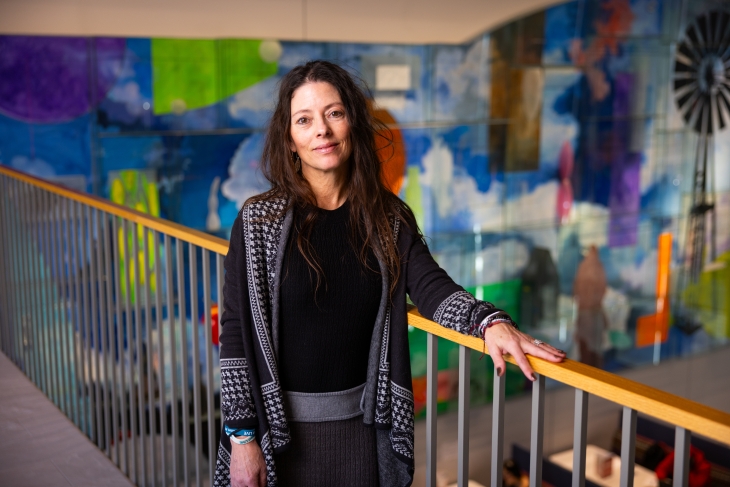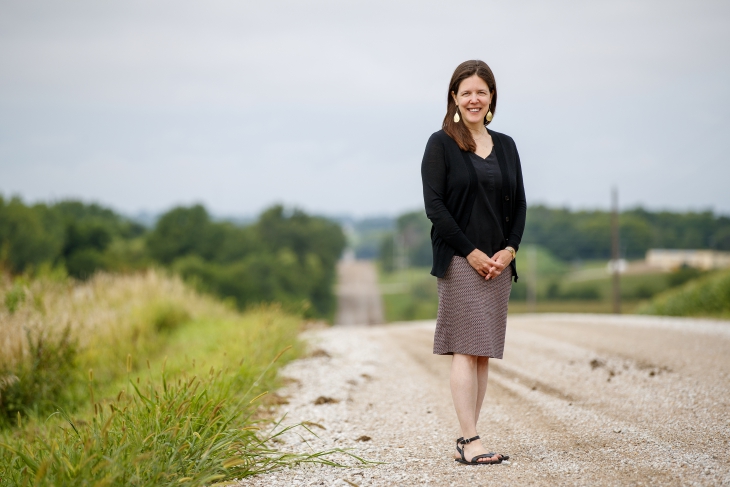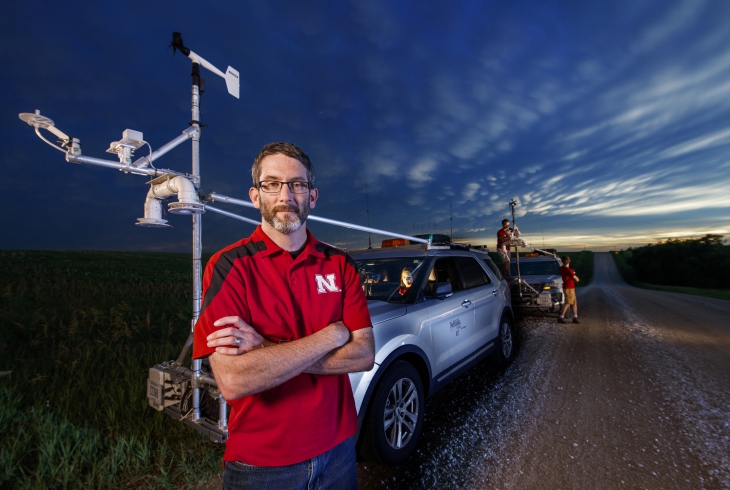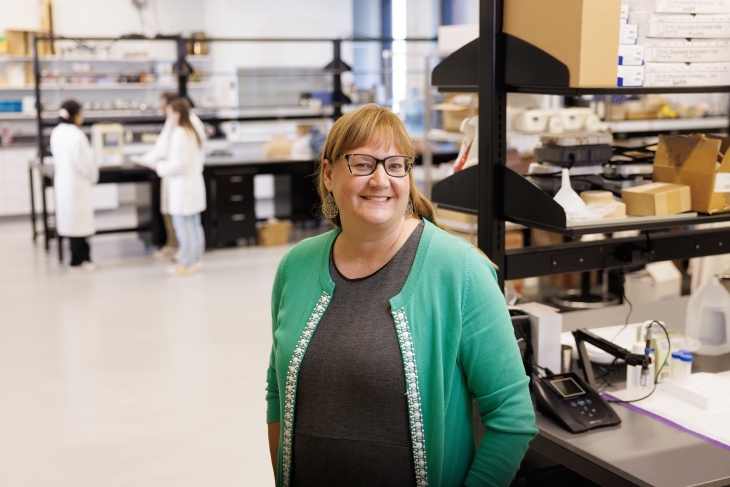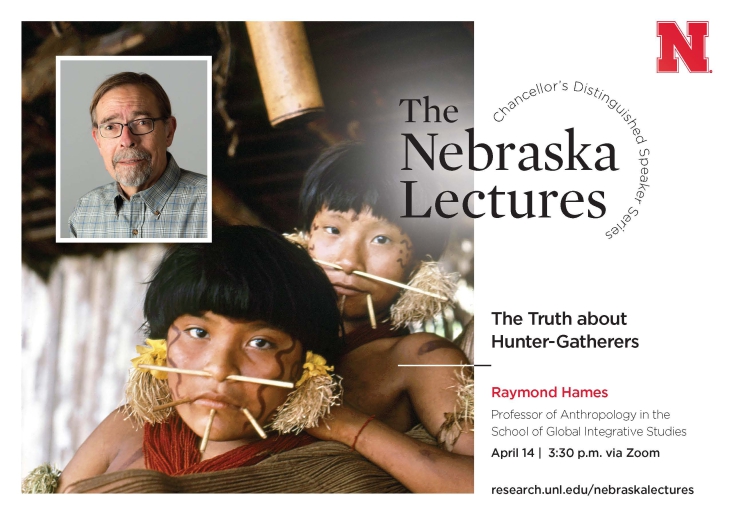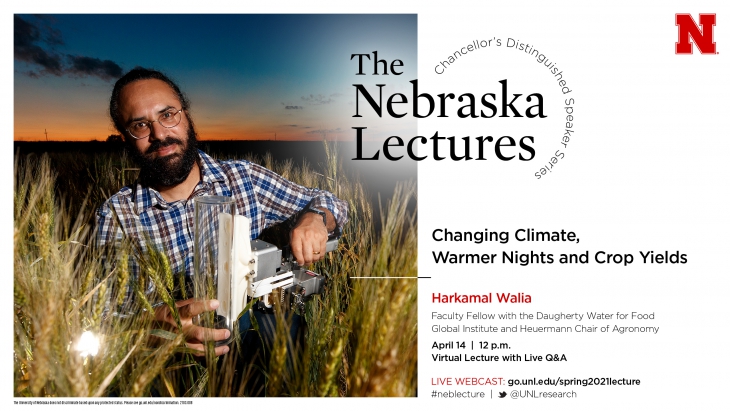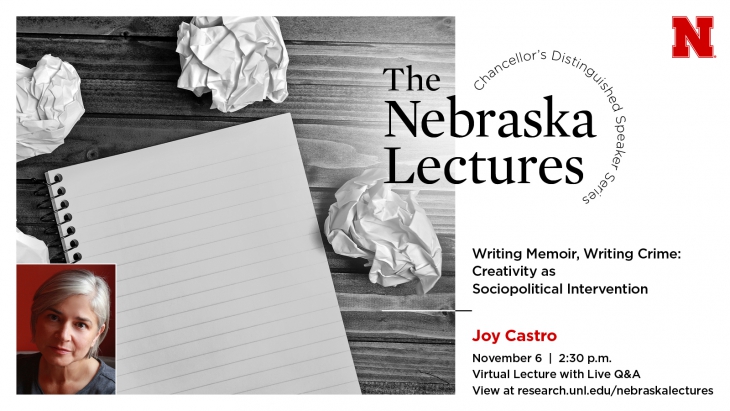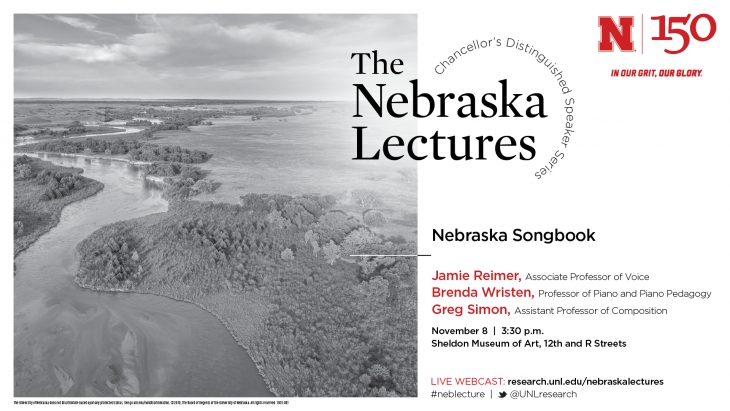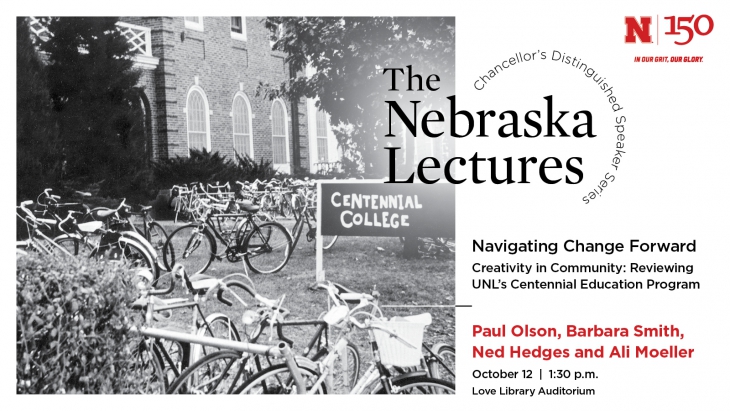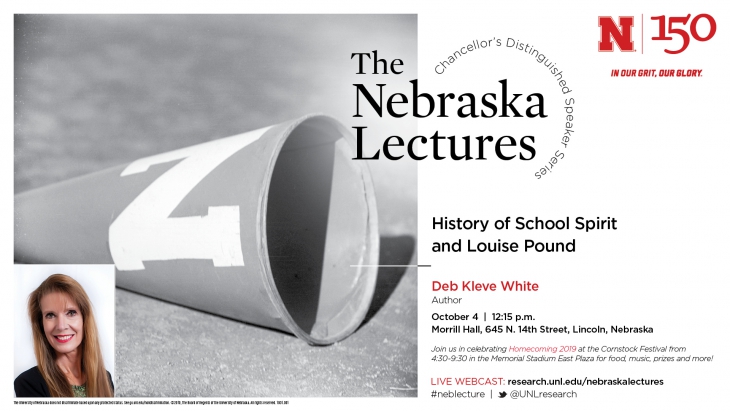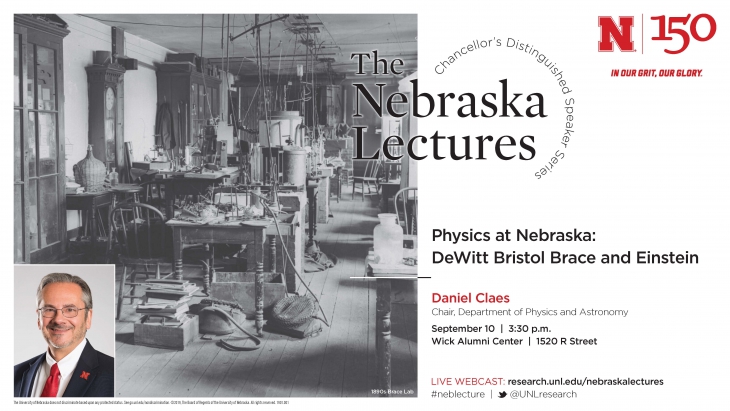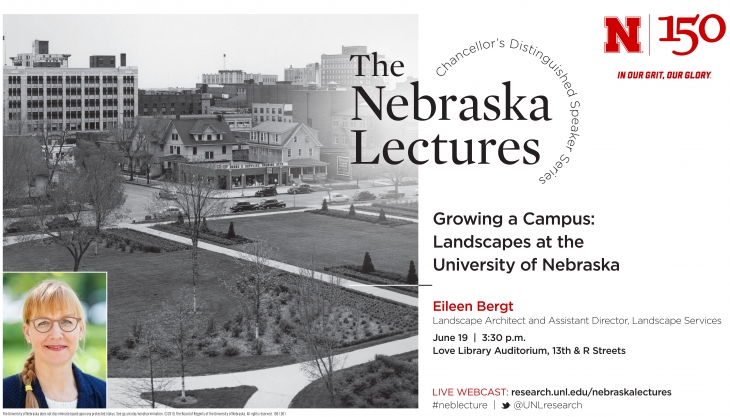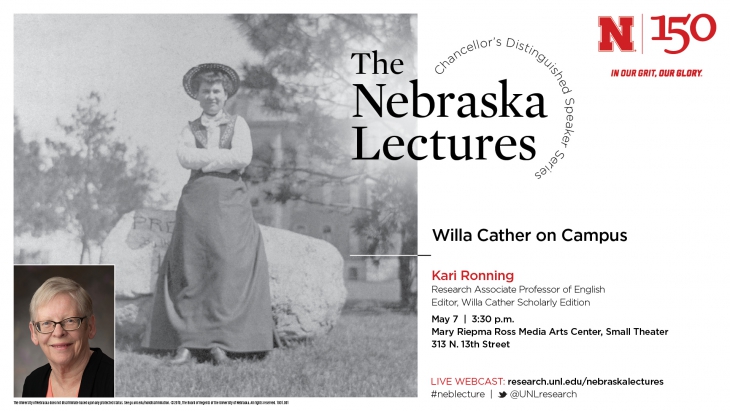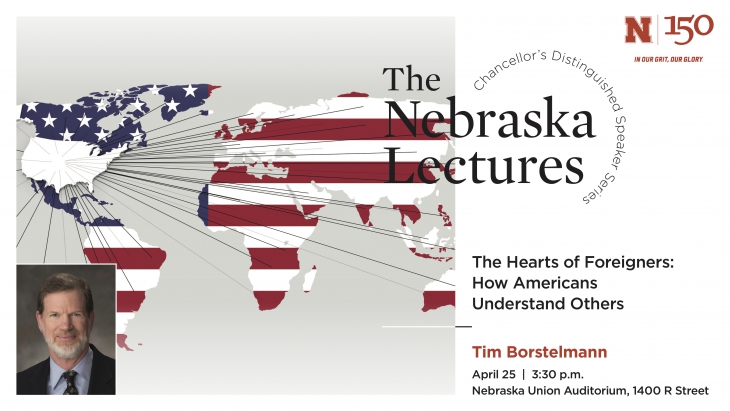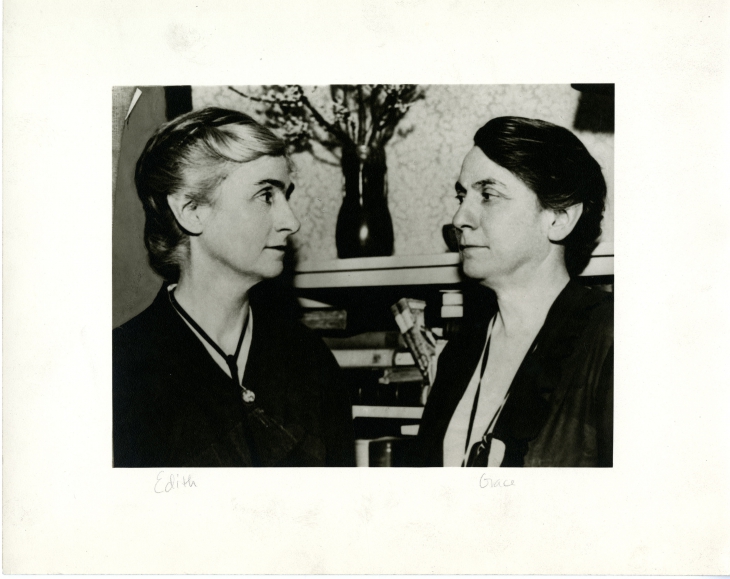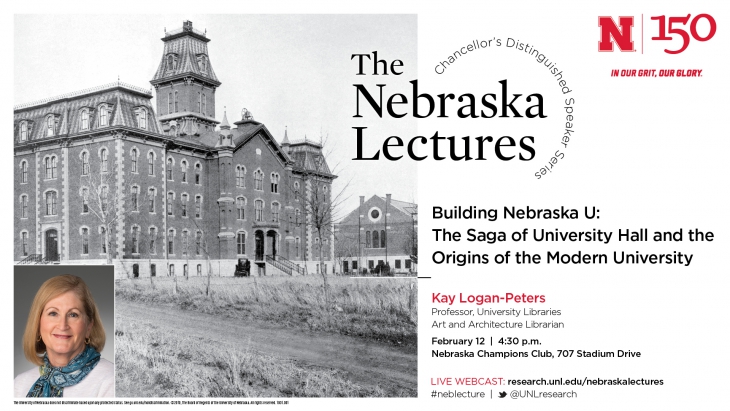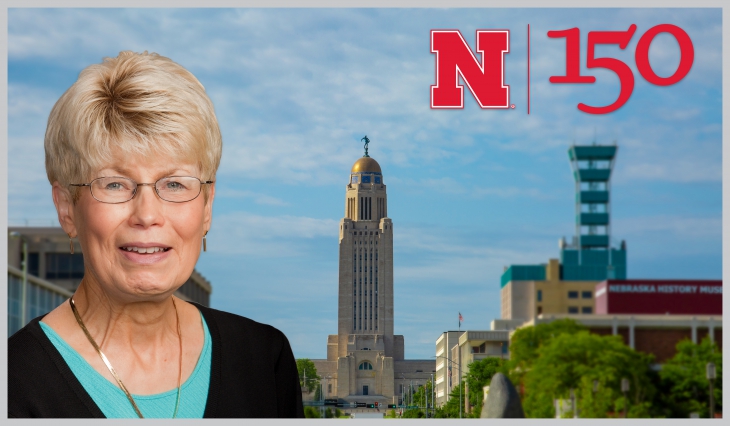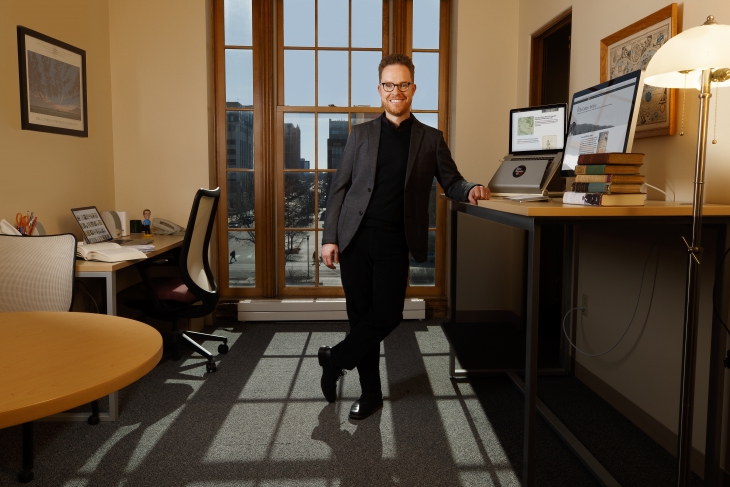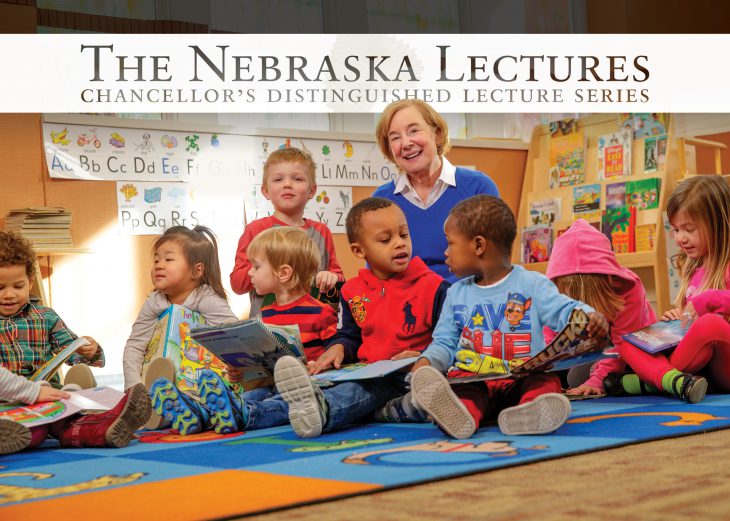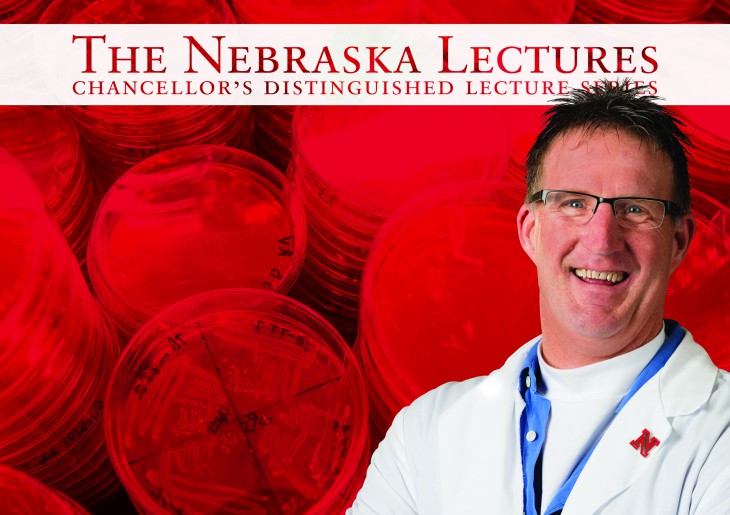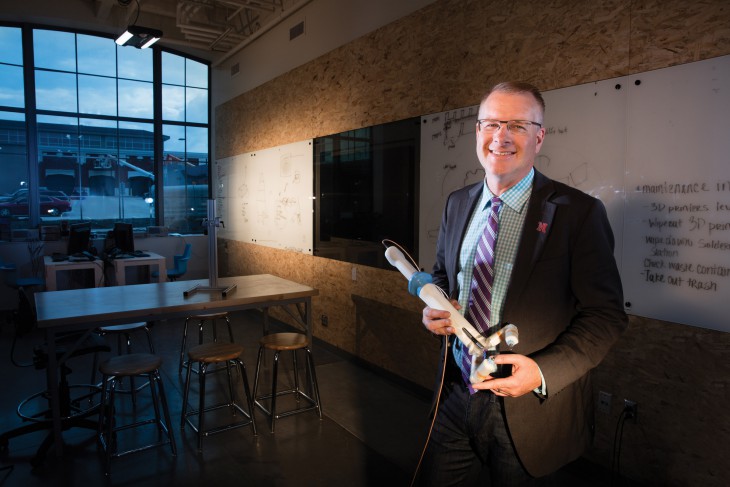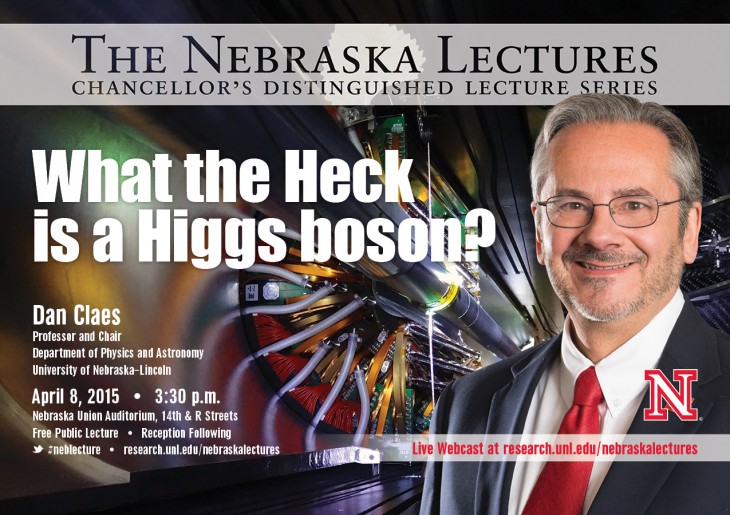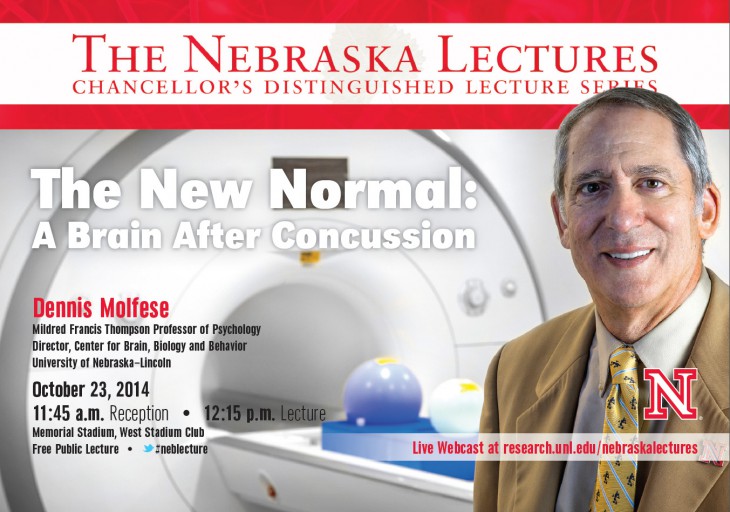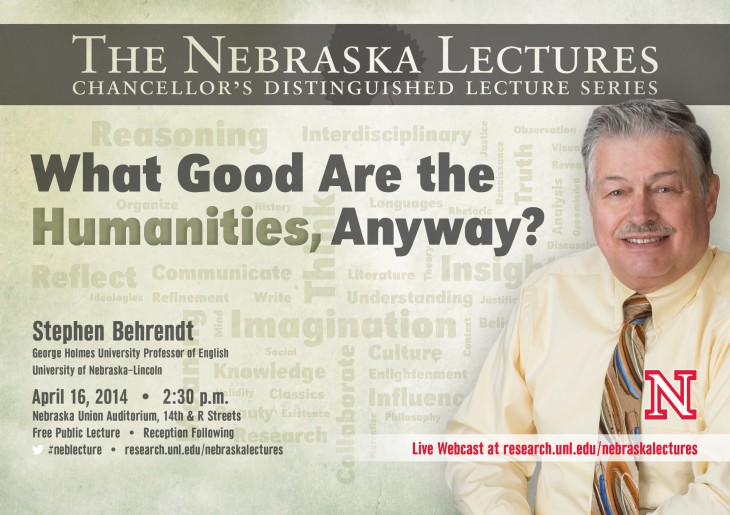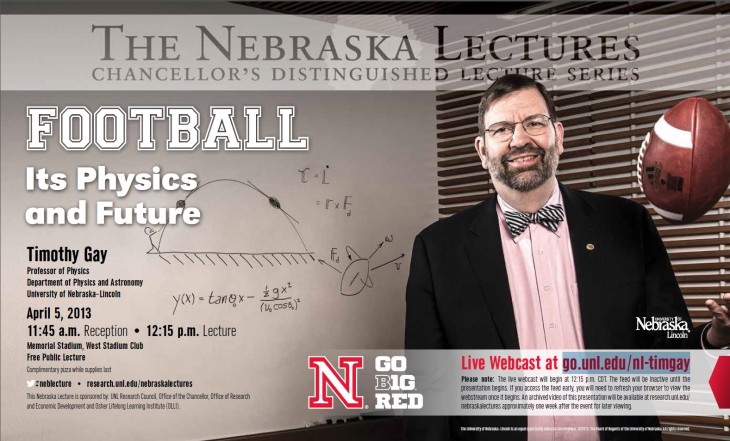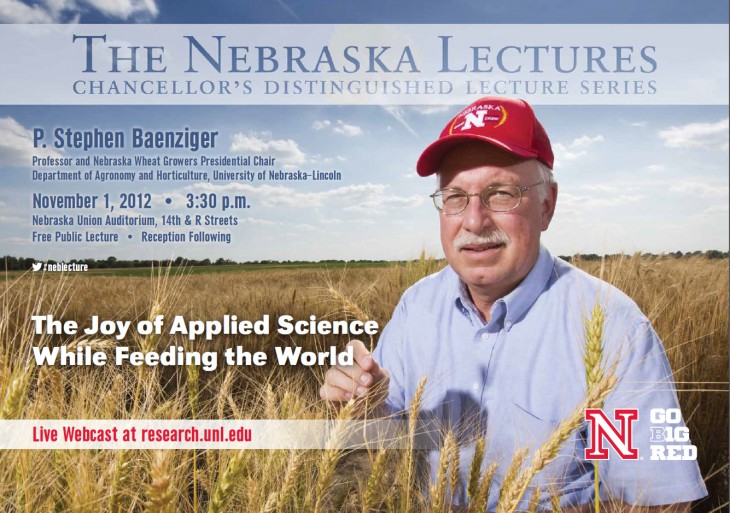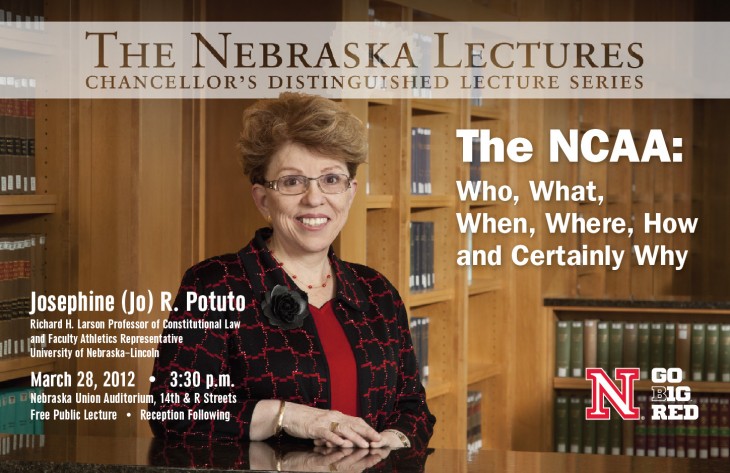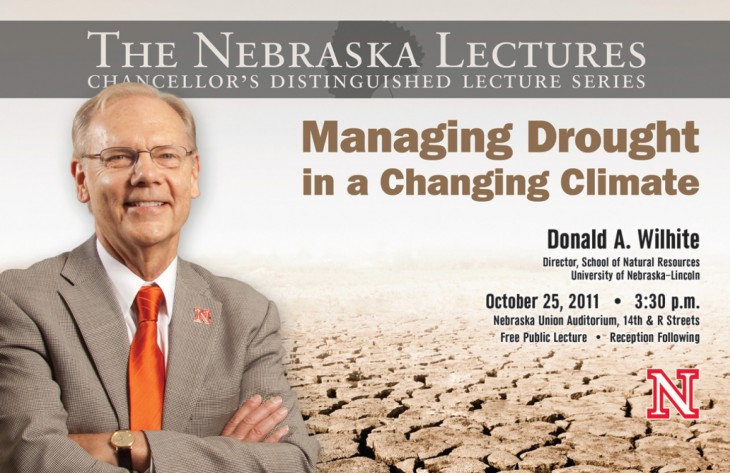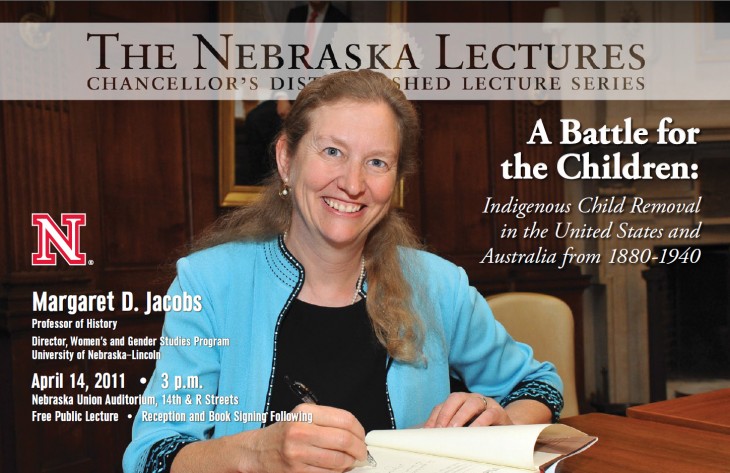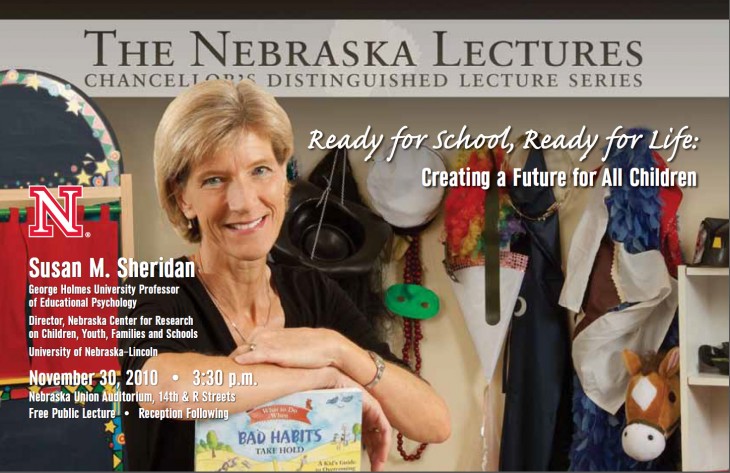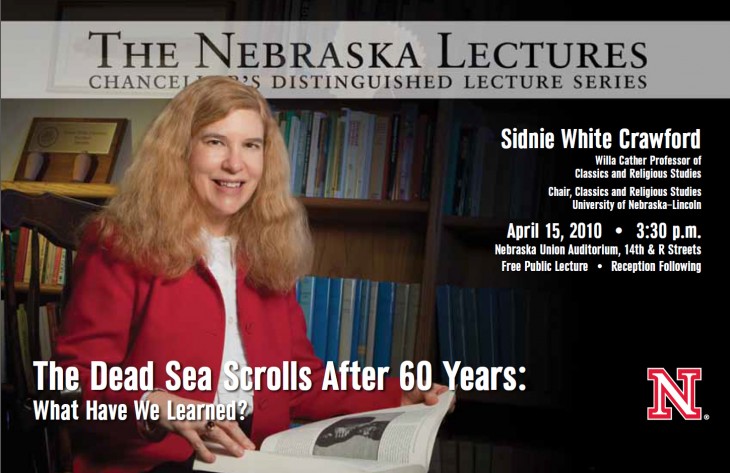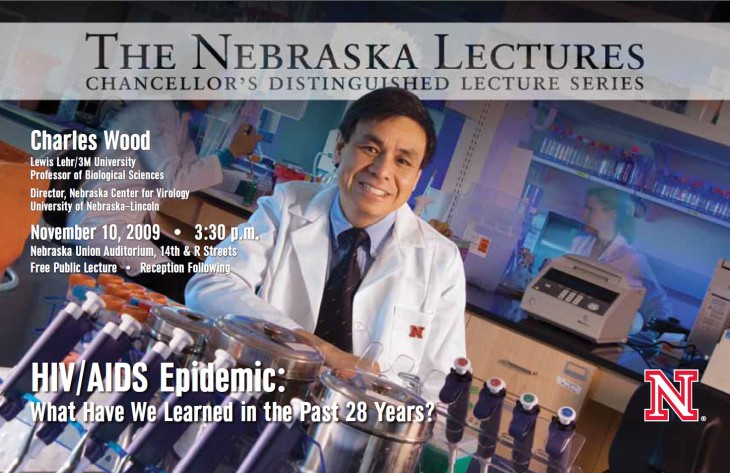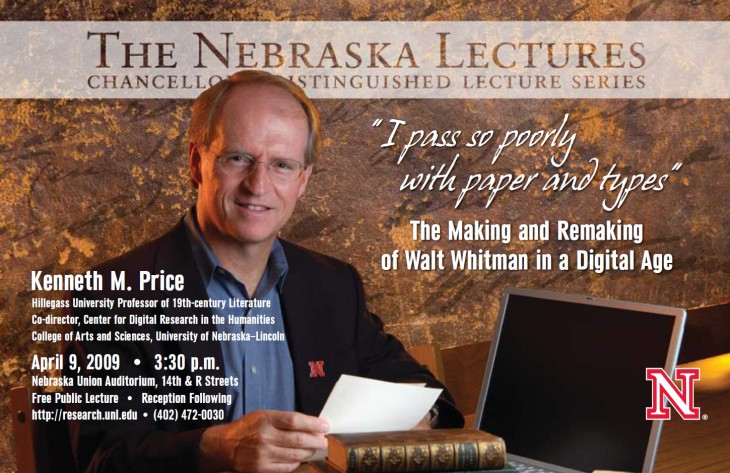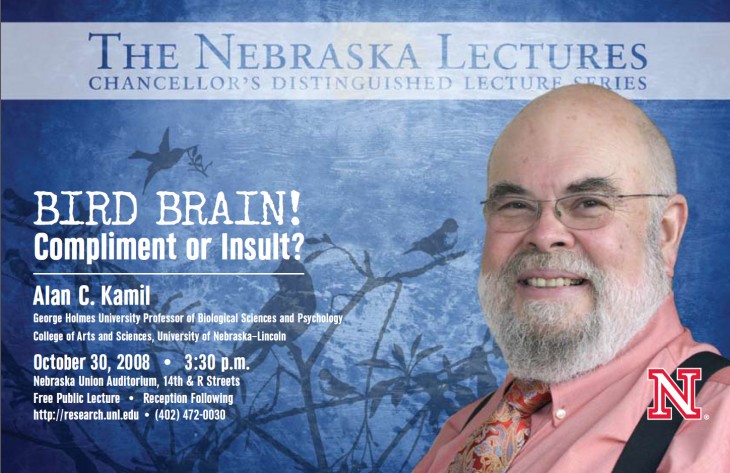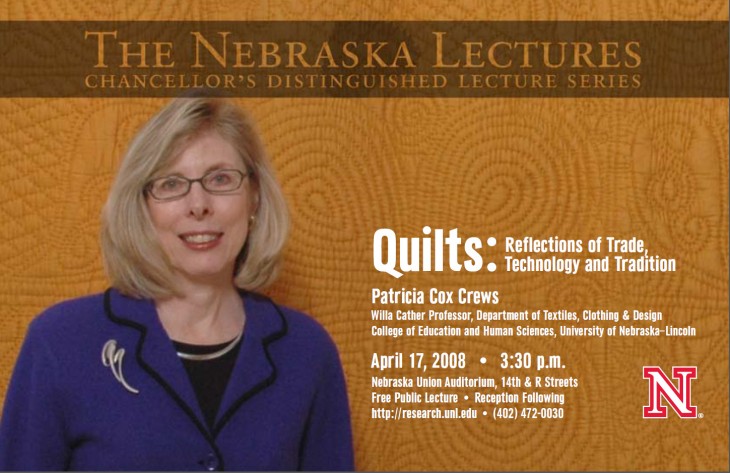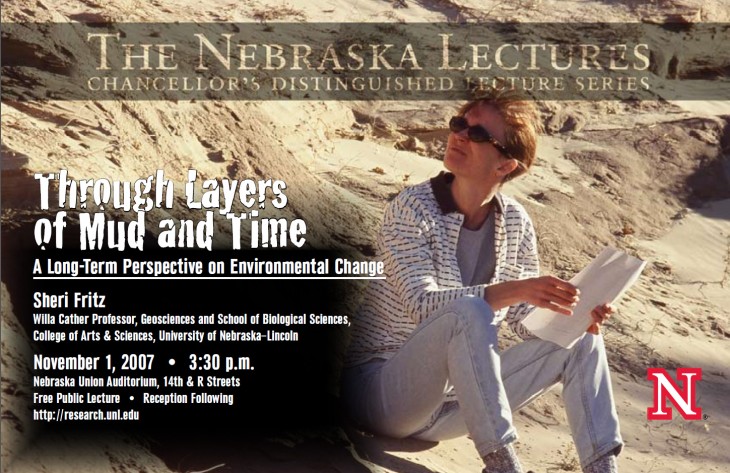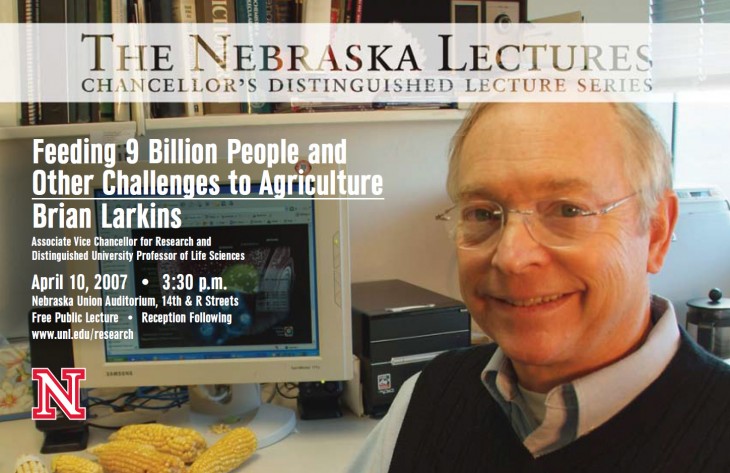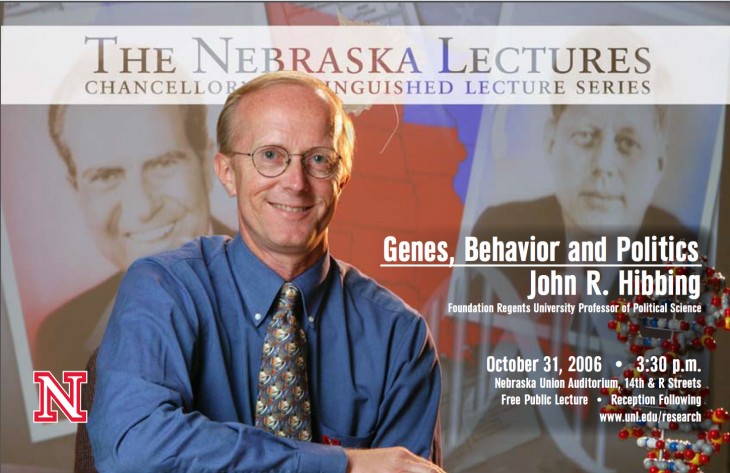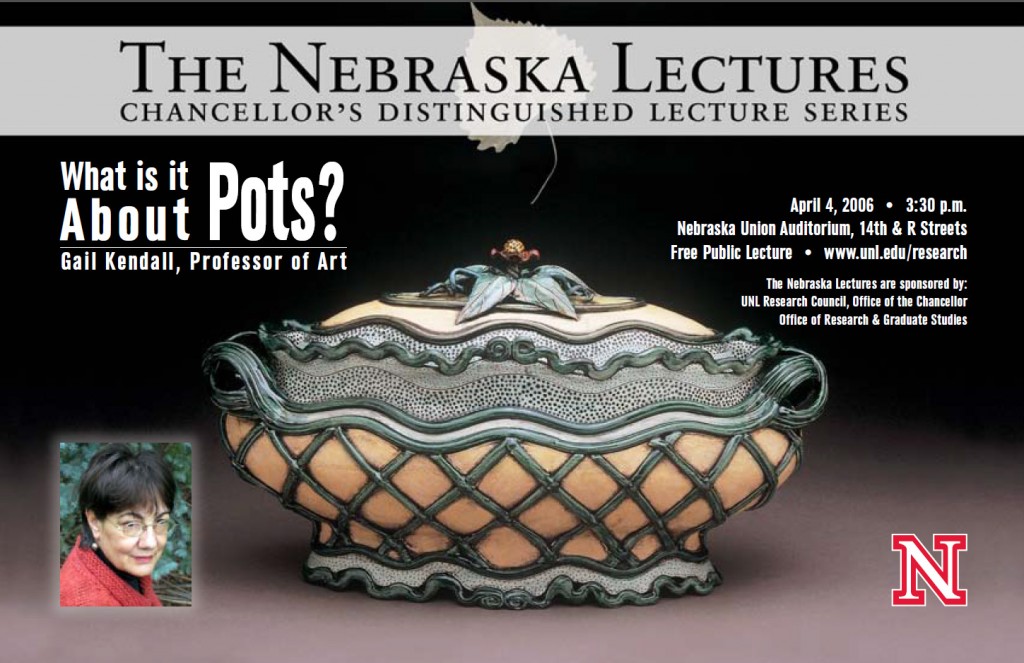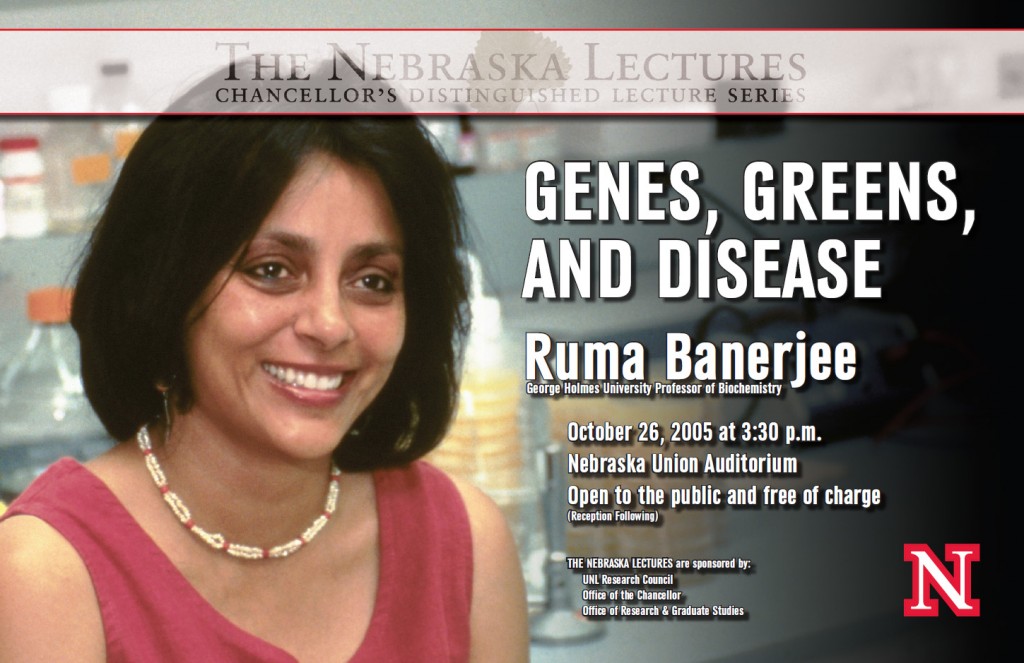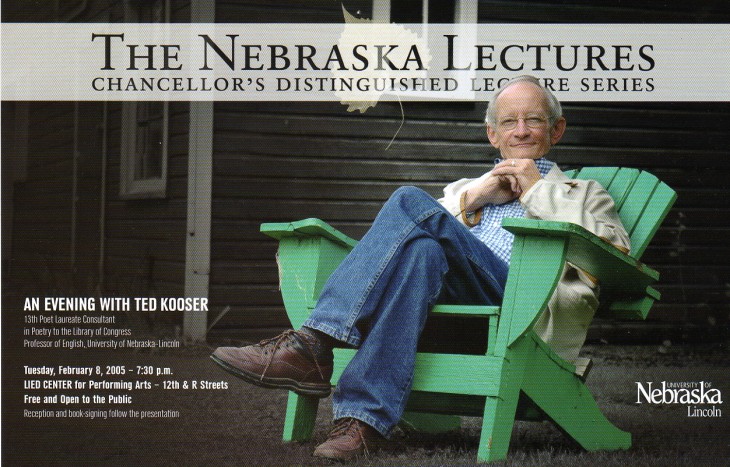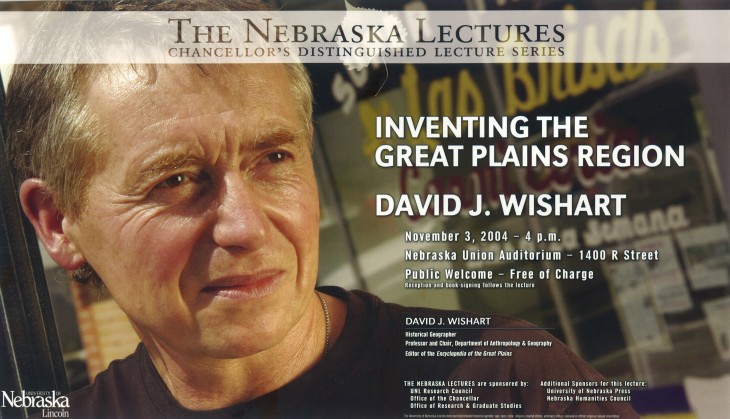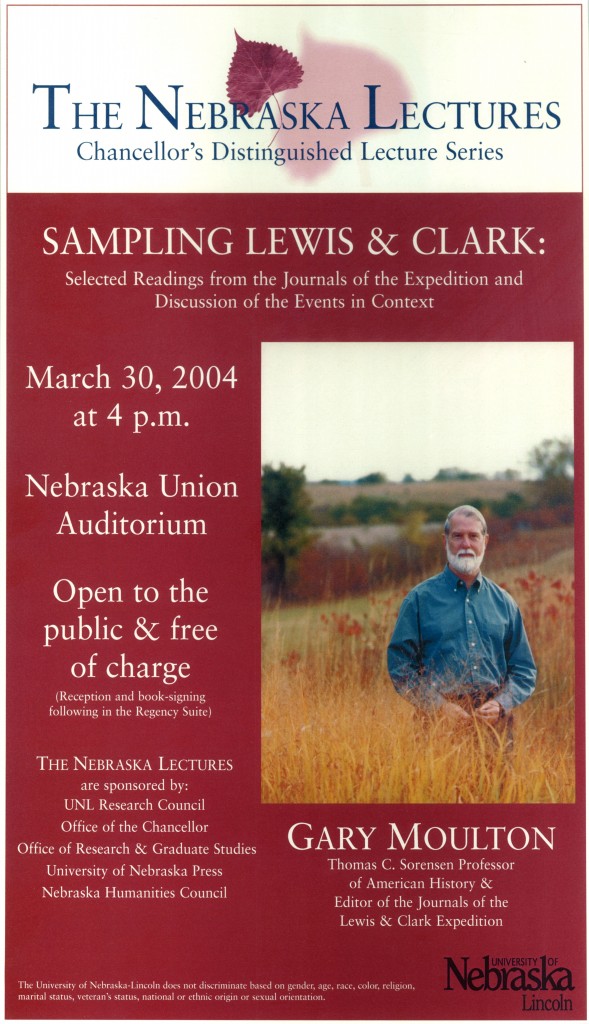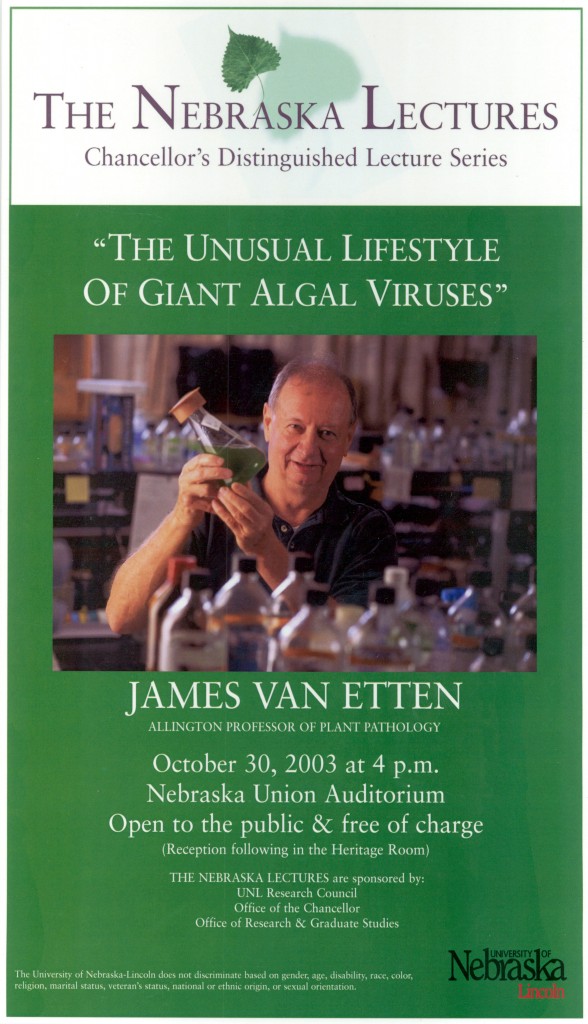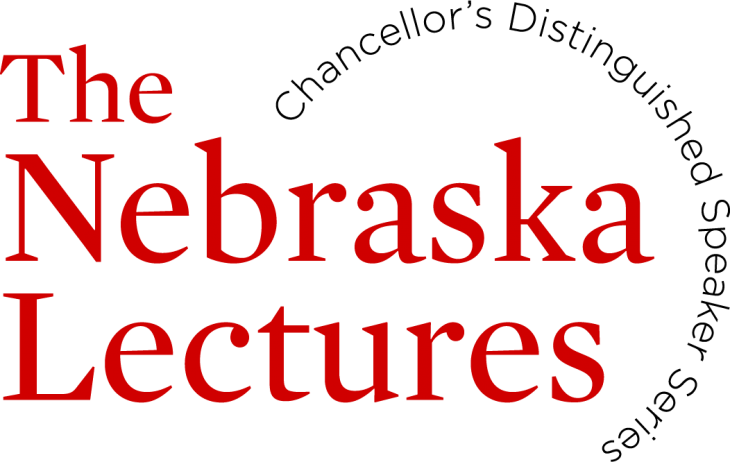
About the Nebraska Lectures
The Office of Research and Innovation partners with the Office of the Chancellor and the Research Council, in collaboration with the Osher Lifelong Learning Institute, to sponsor the Nebraska Lectures: the Chancellor’s Distinguished Speaker Series. Typically offered once a semester, the Nebraska Lectures bring together the university community with the greater community in Lincoln and beyond to celebrate the intellectual life of the University of Nebraska-Lincoln by showcasing the faculty’s excellence in research and creative activity.
The topics of these free lectures reflect the diversity of faculty accomplishments in the arts, humanities, social sciences and physical sciences. For more than 10 years, this forum has crossed academic boundaries to build morale and a sense of common identity, allowing some of the great minds on the UNL faculty to share notable discoveries in a non-technical format, fostering a collective passion for education and research, and spurring the imaginations of those who share the need to know more. Read more about how lecturers are selected at the Research Council website.
Parents as Perpetrators: Family-facilitated Child Sex Trafficking in India and Intergenerational Implications for Maternal and Child Well-Being
Rochelle Dalla
Professor of child, youth and family studies
3:30 p.m., April 30, 2025, Swanson Auditorium, Nebraska Union
Human trafficking in India often passes through generations, not because people want their children to enter the commercial sex trade but because sometimes it’s necessary. Family-based sex trafficking is seen as a means of survival in numerous Dalit (formerly “untouchable”) castes who are discriminated against and marginalized. Dalla’s research focuses on the political, economic and social systems that limit familial options of survival and lay the foundation for family-based sex trafficking.
Livestream
The livestream of this Nebraska Lecture will begin at 3:30 p.m. Central time at https://ianrmedia.unl.edu/live-2. The feed will be inactive until the presentation begins.
More information about Parents as Perpetrators: Family-facilitated Child Sex Trafficking in India and Intergenerational Implications for Maternal and Child Well-BeingPrevious Lectures
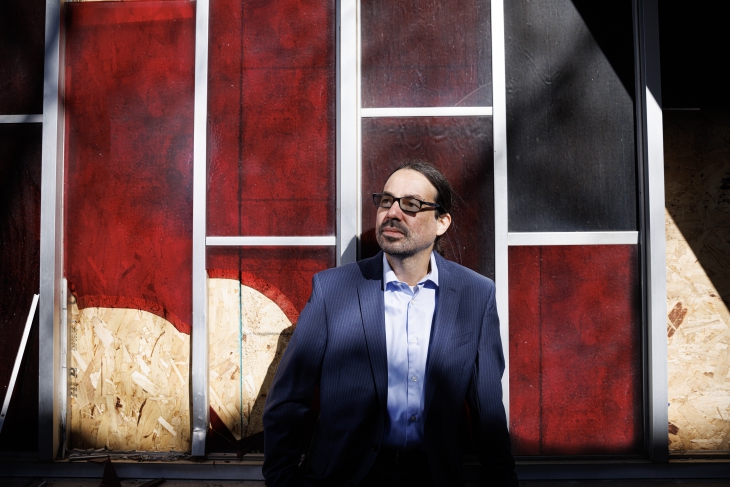
Declining Religion in the U.S.: The Causes and Consequences of Religious Disaffiliation Among Young Americans
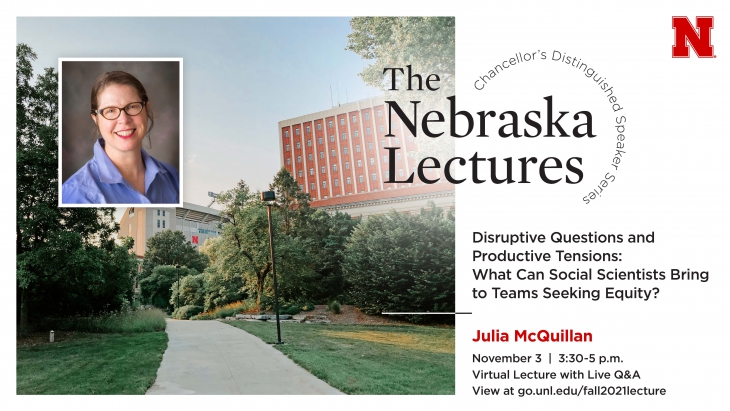
Disruptive Questions and Productive Tensions: What Can Social Scientists Bring to Teams Seeking Equity?
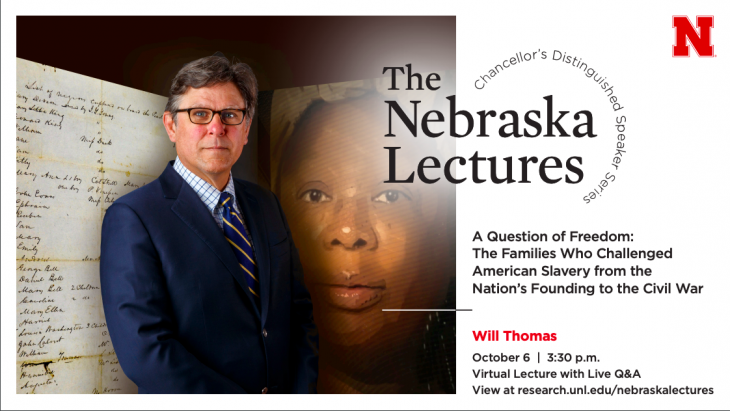
A Question of Freedom: The Families Who Challenged American Slavery from the Nation’s Founding to the Civil War
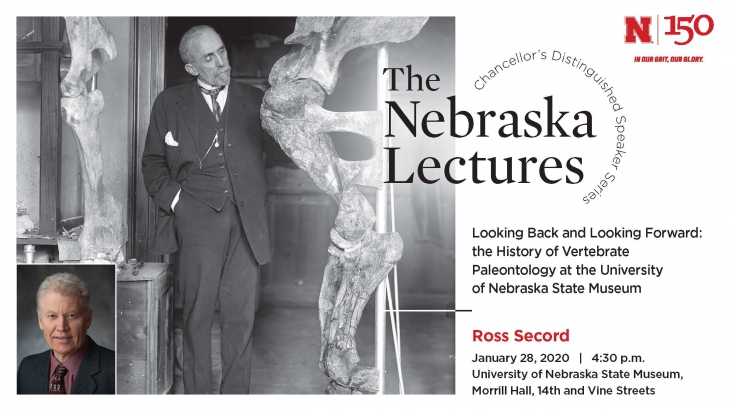
Looking Back and Looking Forward: the History of Vertebrate Paleontology at the University of Nebraska State Museum
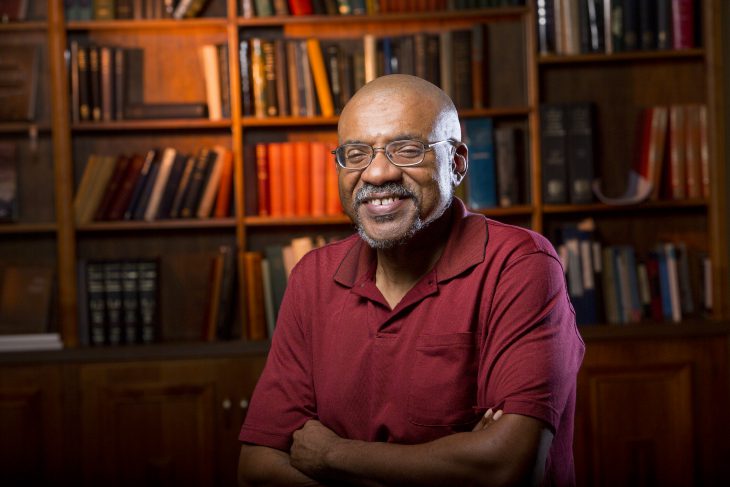
When “They” Becomes “Me”: Responsibility and Action in Literary Activism: The Case of the African Poetry Book Fund
